Horseytalk.net Special Interview
Winters Coming
Stabled or Living Out – What’s Best for Digestive Health?
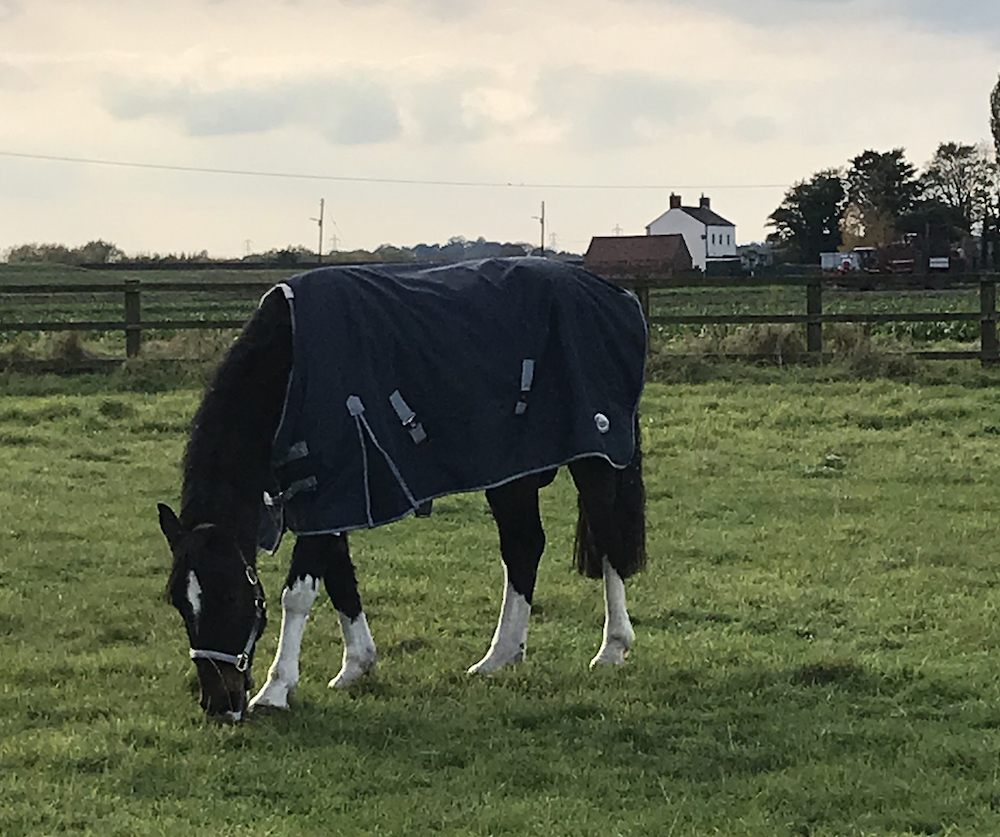
Stabled or living out during winter is a continuous issue that divides opinion but what is best for your horses’ digestive health?
First and foremost, it is important to recognise that not all horses are the same and what is right for one is not always right for another.
Management is also a major factor for many horse owners who don’t have enough acreage to allow their horse the luxury of 24-hour turnout during winter, and with the flooding caused by the heavy rainfall experienced at the start of autumn, sometimes stabling is the only option. Practical restrictions, such as work, personal life and available facilities all contribute to the management of the horse over winter. In some cases, that management is dictated by others for many reasons.
The number one priority regardless of whether your horse lives in or out is to ensure they are getting enough fibre to keep their digestive system working efficiently, with access to ad lib forage being the ideal solution.
Grazing is obviously the most natural situation but most owners don’t have an abundance of grass at this time of year so additional forage in the form of hay or haylage must be provided in the field. If this is not an option because your yard doesn’t allow it then being stabled may well be better than being out.
Living in doesn’t necessarily lead to poorer digestive health – it really depends on the access to forage and the ability to trickle feed. If, in some cases, living in means restricted forage and increased (sometimes excess) hard feed in fewer meals then without a doubt turn out would be better.
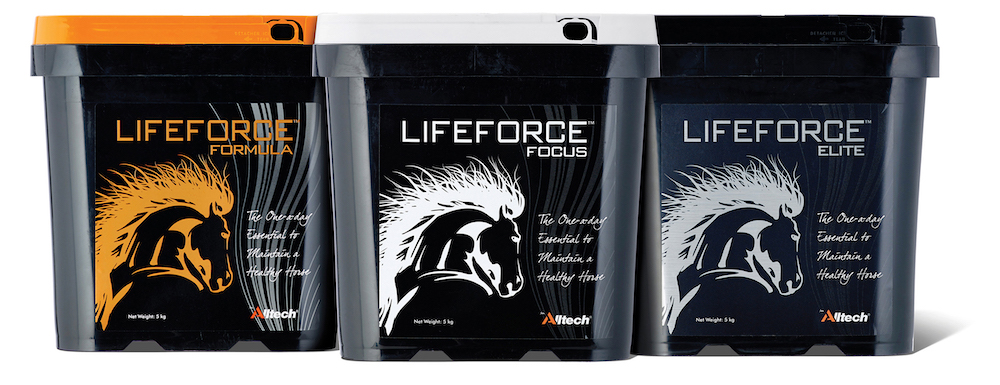
If, however, living in still means they get ad lib forage and can trickle feed with any hard feed being offered in small amounts across a greater number of meals then digestive health per se should be just as good as being turned out.
For exercise and weight management obviously turnout is much better. In the wild horses would put on weight during the summer months and then lose this over winter. However, this natural form of weight management is something that has been lost in the management of many domestic horses. Over-rugging, excess feed and protected from the elements can have a significant metabolic impact, as well as an indirect effect on the digestive health of the horse.
Stress is another factor that can compromise the health of the digestive system and limited access to turnout during winter can be a significant cause for some horses during winter.
Whether your horse lives in or out good digestive health very much depends on the ability to ensure sufficient fibre intake to minimise gut disturbances.
When making the decision about what is best for your horse, it is not just ensuring the health of the digestive system that determines if they should live in or out. There are other contributing factors to making the decision that a horse should live out 24/7, such as respiratory disease and mobility issues.
The Lifeforce Range of all-natural, daily digestive aid supplements from Alltech is designed to benefit horses of every stage of life, from breeding stock to pleasure and performance animals.

For further information please visit www.lifeforcehorse.co.uk or telephone 01780 764512.
How to Cope with Winter Hazards
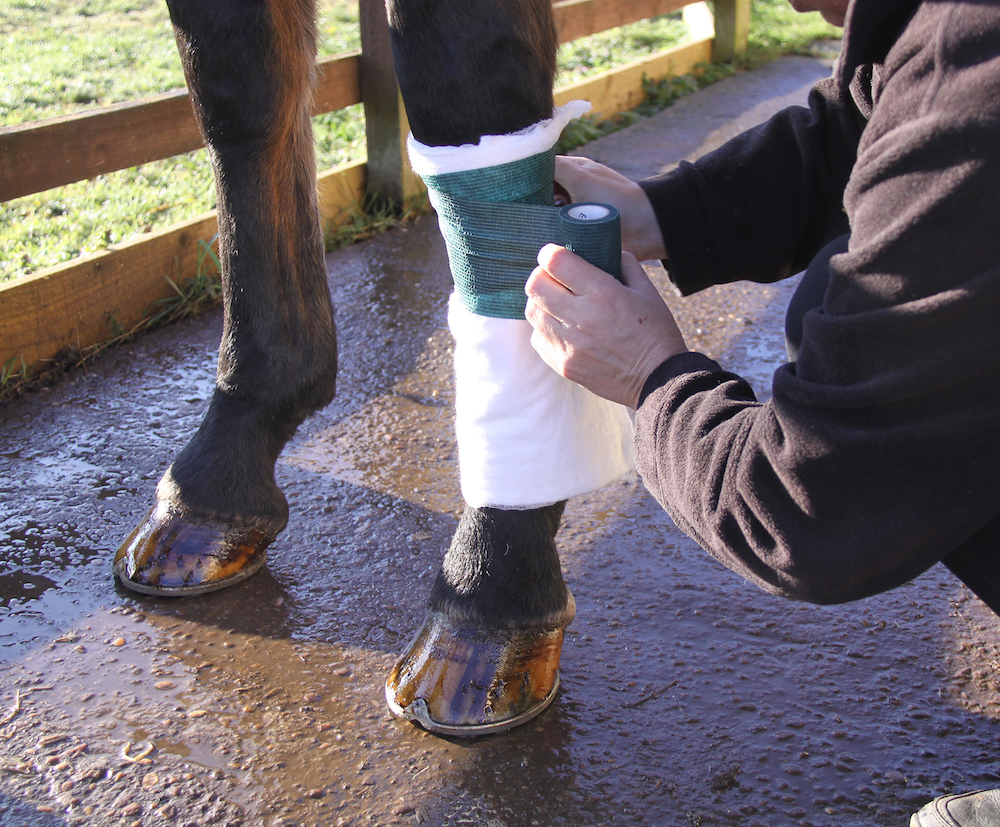
It would be nice to think winter is all about clear blue skies and riding on a crisp frosty morning, when in reality for many horse owners it is an endurance test to make it through to spring in one piece.
The difficulties of owning a horse during the winter months can make life a challenge, negotiating the hazards that a British winter can throw at us.
Horse owners have already been tested this winter with an unprecedented wet autumn, causing muddy conditions and as temperatures drop, being prepared will help ease your way to spring, stress free.
During muddy conditions it is best, where possible to allow your horse’s legs to dry naturally and then brush the mud off. If you must wash your horse’s legs it is essential that you dry them properly. Bandaging the legs with Veterinary Gamgee® helps to absorb excess moisture and provide warmth and insulation.
Equiwrap® is Robinson Animal Healthcare’s range of flexible and lightweight cohesive bandages and they come in a variety of colours to brighten up your first aid kit and are ideal for securing Veterinary Gamgee®.
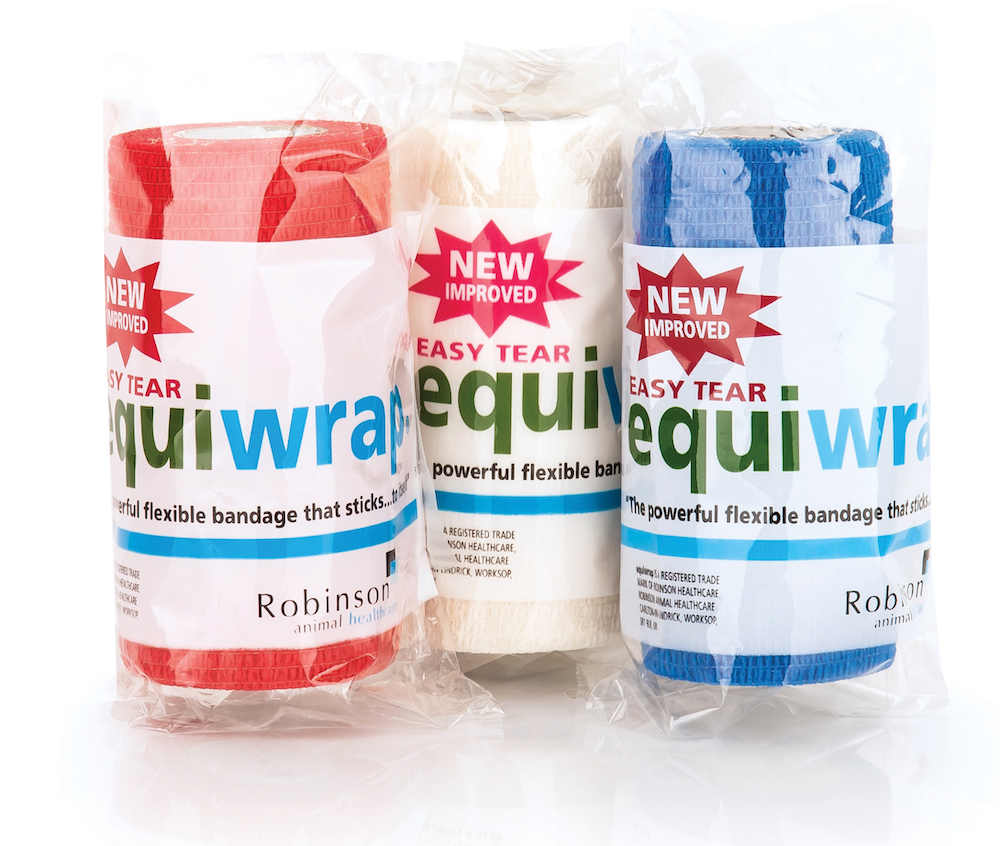
Hard frozen ground or even deep muddy conditions can lead to strains, tendon injuries and knocks. Cold therapy is ideal for the treatment of inflammation and soft tissue injuries but traditional cold hosing with water in the winter months may lead to cracked heels or other skin problems.
Koolpak® provides instant, dry cold therapy, without the need for refrigeration, reducing heat and swelling.
As we head into the depth of winter ensure that you store your first aid kit in an appropriate place to prevent liquid items from becoming frozen.
Always break the ice on water buckets and drinking troughs and add warm water to the bucket as some horses are reluctant to drink extremely cold water, increasing the risk of colic.
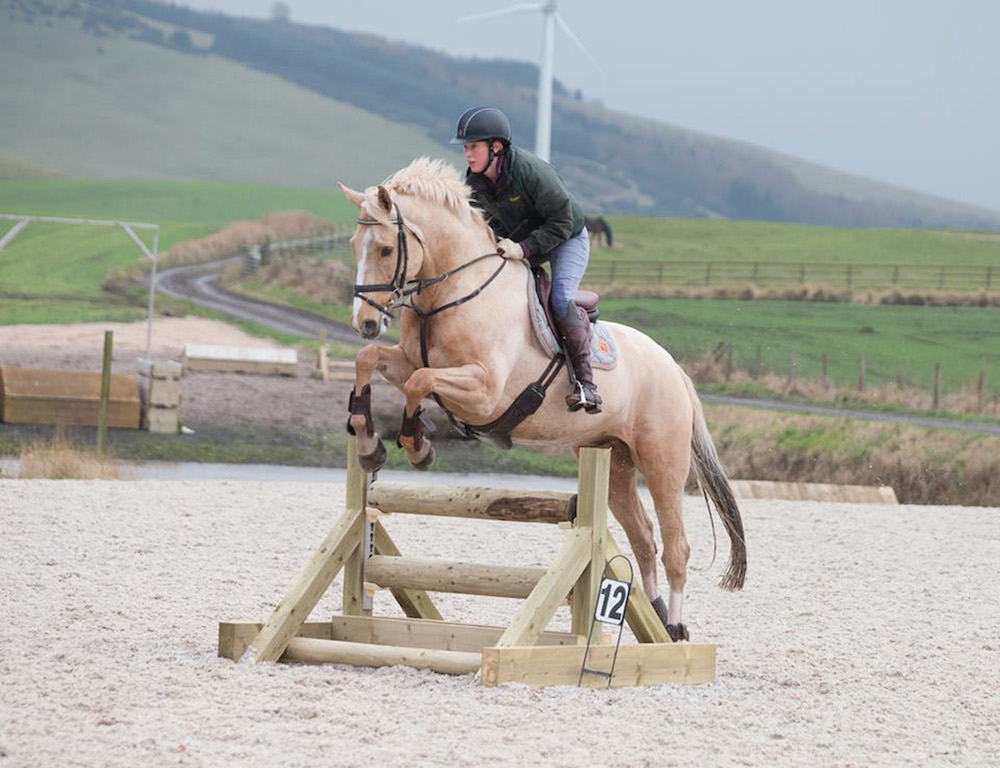
Based in Scotland, sponsored rider, Louisa Milne-Home is used to braving bad weather during winter. Here are her two top tips.
· Keep a plentiful supply of salt to hand and always salt pathways and ramps to muck heaps. Stock up early as once the freezing conditions hit, supplies will quickly sell out.
· If you are lucky enough to have your own arena, keep it harrowed regularly to help prevent it from freezing.
Robinson Animal Healthcare has a wide range of products for all your first aid requirements including the market leading Animalintex®, which is the only VMD licensed multi-layered absorbent poultice available in the UK and the legendary Veterinary Gamgee®.

For more information contact Robinson Animal Healthcare on 01909 735000 or visit www.robinsonanimalhealthcare.com
